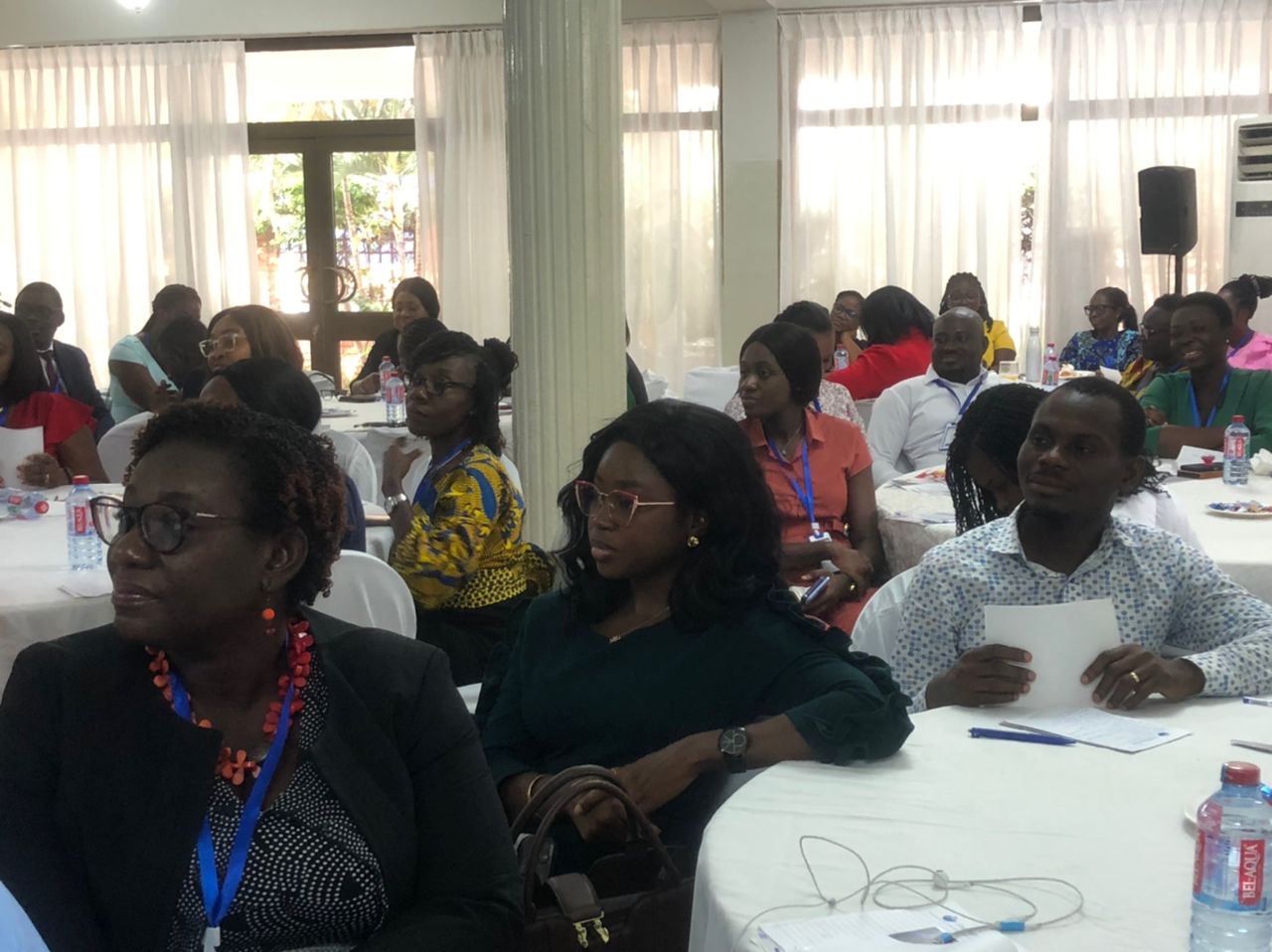
All workers have rights and duties. In Ghana, the Labour Act (2003) Act 651 spells out the rights and duties of not only workers, but those of employers as well. It may be useful to state that Act 651 “applies to all workers and to all employers except the Armed Forces, the Police Service, the Prison Service and the Security and Intelligence Agencies specified under the Security and Intelligence Agencies Act 1996 (Act 526)”. (Reference: Section 1, Act 651)
Pregnancy is not a sickness but requires special attention. The nine-month period of carrying a baby by a worker is very important to the family system and the country. Furthermore, some months after delivery, the Labour Act even gives recognition and rights to the nursing mother.
The Labour Act (Ghana)
Section 55 (Subsections 1, 2 &3) of Act 651 states on Night work or overtime by pregnant women as follows:
(1) Unless with her consent, an employer shall not
(a) assign or employ a pregnant woman worker to do any night work between the hours of ten o’clock in the evening and seven o’clock in the morning;
(b) engage for overtime a pregnant woman worker or a mother of a child of less than eight months old.
(2) The pregnant woman worker or the mother may present a written complaint to the National Labour Commission established under section 135 against an employer who contravenes subsection (1).
(3) The Commission shall investigate the complaint and its decision on the matter, shall subject to any other law, be final.
It is very important for pregnant employees to know their rights and enjoy them and also for employers to endeavour not to violate these provisions of the law or find themselves in troubles.
Section 56 also makes a provision on Prohibition of assignment of pregnant women as follows:
(1) An employer shall not assign, whether permanently or temporarily, a pregnant woman worker to a post outside her place of residence after the completion of the fourth month of pregnancy, if the assignment, in the opinion of a medical practitioner or midwife, is detrimental to her health.
(2) The pregnant woman worker may present a written complaint to the Commission against the employer who contravenes subsection (1).
(3) The Commission shall investigate the complaint and its decision on the matter shall, subject to any other law, be final.
The rights of the nursing mother can be read from Section 57 (Maternity, annual and sick leave). Maybe, it is worthy to indicate that Subsection 2 provides – “a woman worker on maternity leave is entitled to be paid her full remuneration and other benefits to which she is otherwise entitled”. Employers must also understand that it is unlawful for them to dismiss a woman worker due to her absence from the workplace on maternity leave. (Reference: Subsection 8)
The case of pregnant Fire Service women
According to Daily Graphic /Graphic Online report dated 22/03/19 by Caroline Boateng and Emmanuel Ebo Hawkson, “two service women of the Ghana National Fire Service (GNFS) who were dismissed in 2013 and 2014 for getting pregnant have been reinstated”. The two fire women were dismissed for breaching Regulation 33 (6) of the Conditions of Service of the Ghana National Fire Service (GNFS) which made it unlawful for female employees to get pregnant within the first three years of their employment. The two fire service women considered the GNFS regulation as discriminatory and filed a petition at Commission for Human Rights and Administrative Justice (CHRAJ) for redress.
CHRAJ took the case to the Human Rights Division of Accra High Court against the Attorney-General (who represented GNFS) and was able to convince the court that the GNFS regulation based on which the two ladies were dismissed was discriminatory and affected their rights as women. The presiding judge, Justice Anthony Yeboah, stated that “the second and third applicants … are women who are protected under Article 17 of the 1992 Constitution. The right to family includes their right to be pregnant and they are entitled to the right to choose when to become pregnant”. The judge ruled that GNFS Regulation 33 infringed on marriage and sex life of the fire service women during the first three years of engagement of working. The learned judge indicated that the two women were badly treated and declared that they have suffered discrimination on the ground of gender.
The presiding judge ordered for the reinstatement of the two women and awarded GH¢100,000 as compensation to the two women. The Attorney-General, who was the defendant, filed an appeal against the quantum of the costs levied and requested for stay of execution, but this was not upheld.
The two women who were dismissed were reinstated as per the order of the court. According to the letter from the then Chief Fire Officer to CHRAJ dated 13/03/19, the two women were asked to report to the Greater Accra Regional Officer for reassignment and that steps were being taken to have their entitlements paid to them.
Pregnant Workers Fairness Act (United States of America)
This American legislation was signed into law by President Joe Biden on 29/12/22. This law became effective on 27/06/23. Writing on Pregnant Workers Fairness Act: Protections, Legal Remedies, Examples, Jim Probasco (18/01/23) indicated that the law “prohibits employment practices that discriminate against pregnant workers by failing to make reasonable accommodations that would allow those workers to perform the essential functions of their job”.
The Act affects employers who have staff strength of fifteen or more. The legislation requires employers to make reasonable provisions or accommodations for pregnant workers and job applicants who have some challenges due to pregnancy, childbirth or other related conditions. According to Probasco, the law “prohibits retaliation against individuals who express opposition to acts or practices made unlawful by the law. It prohibits coercion, intimidation, threats or interference with individuals who have exercised, or have aided or encouraged another to exercise, their rights under the act”.
Expected reasonable accommodations for pregnant workers include:
- Making available more restroom breaks.
- Reduction of lifting requirements.
- Granting leave for a pregnant worker who is not entitled for leave under the Family and Medical Leave Act.
- Providing a different office equipment or furniture (at a reasonable cost to the employer) to enable pregnant employee to work conveniently.
- Making provisions for light duties.
- Interim transfer to a less manually demanding job.
- Changing dress code or uniform which makes apparel convenient/appropriate.
In addition to the afore-mentioned, Probasco stipulated legal remedies available to pregnant workers under the Act as follows:
- A court may give an order for the payment of a lost pay.
- A court may also award interest on payments to be made.
- Compensatory damages and punitive damages may also be awarded.
- Other reliefs, including legal costs, reasonable attorneys’ fees and experts’ fees to the extent that such reliefs are available under the law.
The law requires that undue hardships must not be placed on the employer in his attempt to provide various accommodations for the pregnant worker. The examples cited by Probasco in his exposition include:
- A high cost to be incurred by a small businessowner in temporarily transferring a pregnant worker to light duty position or location.
- An accommodation which affects safety at the workplace.
iii. A provision which negatively affects efficiency in business operations.
- An accommodation which infringes on the rights or benefits of other employees.
- An accommodation or proposed provision which contravenes another law.
General benefits under the Pregnant Workers Fairness Act include the following:
- It provides fairness to pregnant workers.
- It guarantees some level of safety for them and their unborn children at the workplace.
- It assists in health and pregnancy protection.
- It provides decency for them.
- It provides that they are not forced to take unpaid leave or forced out of job completely when there is a need for a reasonable changes in duties at the workplace.
- It is pro-mother, pro-baby, pro-employer and pro-economy.
- It enhances the awareness of rights of pregnant employees.
Ways of supporting pregnant employees
In the view of Senator Bob Casey, “Pregnancy should never be a barrier for women who want to stay in the workplace”. Indeed, there should be adequate support to ensure some level of convenience for pregnant workers to perform their operational roles. If the pregnant worker is self-employed, it means that she must ensure that she provides the necessary safety and convenience at her place of work.
In their article, Five Ways Managers Can Support Pregnant Employees, J. K. Hackney, S. R. Daniels and others (12/01/22) made useful contributions on the matter as follows:
- Managers should use permissive resources to support them. It is needful, first and foremost, to know the kind of support they will require during their pregnancy. In engaging pregnant workers in dialogues, managers will know the specific permissible accommodation to provide and the cost involved, if any. Managers will know whether they will need a change of schedule (lighter schedule) or reduction in the number of hours.
- Offering flexible work options is a factor which managers must note. Managers must find out if pregnant workers can work from home at certain periods or have flexible time schedules with respect to their work schedules. This must aim at reducing stress and improving job performance.
- It will be needful for managers to make provisions to accommodate time off for medical appointments because prenatal care demands regular hospital visitation. Regular clinical visitation may prevent complications in pregnancy. It is necessary for managers to have good knowledge of this so that complaints of hospital visitation may be avoided.
As a guide, the writers indicated hospital visitation as follows:
**Once a week till 28th week of pregnancy.
**Every two weeks till 36th weeks of pregnancy.
**Weekly (usually) 36-40 weeks of pregnancy.
They added that the higher the age and the multiple of babies, the more frequent the clinical visits. Managers must have basic understanding of these and the medical appointments, so that they can be accommodating when the pregnant workers have to leave the workplace early, arrive late or work remotely for their health and safety and those of their babies.
In my opinion, if a manager does not agree with any of these pregnancy-related hospital visitations, he can speak with a medical doctor or a midwife for further explanation, clarification, justification or otherwise.
- It is important for managers to facilitate interactions with work colleagues because doing so will serve as “stress-reducing resources” for pregnant workers. This option will reveal whether they are interested in Zoom meetings or other types of communication. The managers should be able to provide socialising options if need be.
- Lastly, managers should intentionally create an inclusive organisational climate to be enjoyed by pregnant workers. Managers must also endeavour to eliminate biased behaviours and project inclusive behaviours. In my view, psychological safety must be developed and sustained for them to feel comfortable in sharing their professional ideas without unnecessary criticisms and spiteful reactions from co-workers. Display of empathy by the managers and other colleagues will enhance the experiences of inclusion.
In addition to the five ways of supporting pregnant workers as discussed earlier, employers and supervisors must have basic knowledge about the trimesters of pregnancy and be guided accordingly.
First trimester: Conception to 12 Weeks
Second trimester: 13 Weeks to 27 Weeks
Third trimester: 28 Weeks to 40 Weeks
For example, the pregnant worker experiences many changes in her body during the first trimester. Medical News Today identified a lot of the changes. But a few of them I want to mention include fatigue, headaches, morning sickness and mood changes. So, it is very clear that she might not be herself and will not have the enthusiasm and vigour to meet organisational expectations. Such a person might not render excellent customer service. The Manager or supervisor should, therefore, know how best to position and handle such a staff to avoid business failure and miscarriage. A manager or supervisor can acquaint himself or herself about what happens to the pregnant worker during the second and third trimesters so as to know how best to treat and accommodate her tactfully and professionally. I don’t have to go any further on the matter of the other trimesters to take too much time of readers.
Pregnancy issues may be private and some confidential, but managers should not ignore any voluntary feedbacks from pregnant workers. The feedbacks may help managers in planning job schedules and guide them in taking informed supervisory, administrative and training decisions. Conversely, pregnant employees must also consider helpful feedbacks from managers and team members relating to their pregnancy and job performance. This is likely to promote cordiality and a win-win situation in the workplace.
Organisations must also remember that regulations on pregnancy will not only affect junior staff, but senior executives as well. Any temptation to discriminate should be avoided.
Conclusion
Laws have been promulgated to protect the rights and interests of pregnant employees. They should not take their rights and privileges for granted. It will be expected that they will also play their roles meaningfully. As much as possible, they must endeavour to meet their deadlines and targets. Pregnant employees should make sure that their attitude to work and professional behaviour are in accordance with the organisation’s code of conduct and core values. It will also be great if they devise creative or innovative ways in carrying out their roles under their unique circumstances to achieve institutional goals. However, when they falter or fail because of the pregnancy conditions, they should be forgiven.
Pregnancy is a blessing and must not be considered as a nuisance in any work organisation. Respect, love, kindness and empathy must be shown to pregnant employees. Pregnant workers must also show commitment and dedication to work. Their work output must be, at least, good and their collaboration with team members must also be exemplary.
Institutions or organisations in Ghana may learn from the American Pregnant Workers Fairness Act. They should also learn from the legal case concerning the two Fire Service women. The practical ways of supporting pregnant women at the workplace must serve as a useful guide. More so, the provisions of the Labour Act relating to pregnant employees must not be overlooked. Employers and work colleagues must not do anything to promote the occurrence of pregnancy discrimination. “In fact, statistics shows that there have been almost 15,000 pregnancy discrimination claims filed in the United States in the past five years.” (Reference: Hackney, Daniels and others – 2022) This situation is not pleasant. There must be interventions in organisations to reduce this trajectory in the USA and any other country where such occurrences are common. Managers at workplaces must remember that pregnancy discrimination negatively affects the career outcomes or progress of pregnant employees.
The writer is a Chartered Banker
The post Supporting pregnant employees in organisations appeared first on The Business & Financial Times.
Read Full Story















Facebook
Twitter
Pinterest
Instagram
Google+
YouTube
LinkedIn
RSS